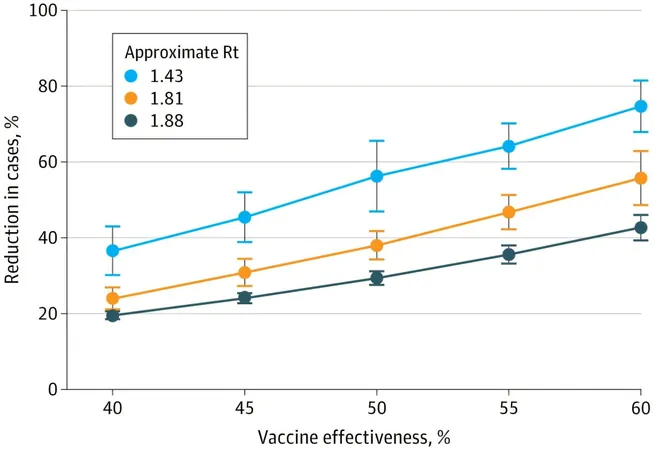
Groundbreaking Biomarker May Revolutionize Sickle Cell Anemia Care: Urinary Angiotensinogen Could Predict Kidney Issues!
2024-09-20
Author: Wei Ling
Introduction
A recent study published in the British Journal of Haematology sheds new light on the connection between urinary angiotensinogen (AGT) and persistent albuminuria (PA) in adults suffering from sickle cell anemia (SCA). Researchers conducted an extensive evaluation involving 280 patients across North Carolina, Tennessee, and Ohio, revealing that more than a third of participants with SCA exhibited PA.
Exciting Findings
According to Dr. Kenneth I. Ataga, the senior author of the study, "What we’re most excited about is that urinary angiotensinogen was not only highly sensitive for PA in patients with sickle cell anemia, but was independently associated with PA." This could signal a major breakthrough in early detection strategies for those at risk of developing chronic kidney disease (CKD) related to SCA.
Research Focus
The research focused on the relationship between various biomarkers associated with endothelial function, coagulation activation, and both glomerular and kidney tubular injuries. Results indicated that patients with PA had significantly higher median plasma levels of soluble vascular cell adhesion molecule-1 (VCAM-1) and other critical biomarkers. Specifically, urinary AGT levels were notably elevated in those with PA, setting it apart as a significant predictor in multivariate analysis.
Understanding Persistent Albuminuria
Persistent albuminuria, defined as an albumin-to-creatinine ratio (ACR) of 30 mg/g or higher, is considered a key early clinical symptom of chronic kidney disease. Alarmingly, prior studies have shown that CKD—regardless of severity—correlates with increased mortality rates in adults with SCA. This underscores the urgency of identifying effective biomarkers for early intervention.
Implications of the Findings
The findings are especially critical given that sickle cell disease, affecting approximately 100,000 Americans, leads to complications including reduced blood flow to the kidneys. Over time, this can result in kidney damage, necessitating a proactive approach in monitoring and managing these patients.
Need for Further Research
While urinary AGT has previously shown promise in predicting kidney damage among normotensive adults with diabetes, the authors emphasize the need for further longitudinal studies. These future investigations are crucial for determining the practical application of urinary AGT in predicting albuminuria onset and the decline of kidney function in SCA patients. "An increase in urinary AGT has been reported to precede the onset of albuminuria in other patient groups," they note, hinting at its potential in this context.
Future Perspectives
As the research community rallies around these findings, the hope is to develop early intervention strategies that could slow CKD progression, thus improving quality of life and survival rates for individuals living with sickle cell anemia. The spotlight is now on urinary AGT—a potential game-changer in the landscape of sickle cell disease management!




 Brasil (PT)
Brasil (PT)
 Canada (EN)
Canada (EN)
 Chile (ES)
Chile (ES)
 Česko (CS)
Česko (CS)
 대한민국 (KO)
대한민국 (KO)
 España (ES)
España (ES)
 France (FR)
France (FR)
 Hong Kong (EN)
Hong Kong (EN)
 Italia (IT)
Italia (IT)
 日本 (JA)
日本 (JA)
 Magyarország (HU)
Magyarország (HU)
 Norge (NO)
Norge (NO)
 Polska (PL)
Polska (PL)
 Schweiz (DE)
Schweiz (DE)
 Singapore (EN)
Singapore (EN)
 Sverige (SV)
Sverige (SV)
 Suomi (FI)
Suomi (FI)
 Türkiye (TR)
Türkiye (TR)
 الإمارات العربية المتحدة (AR)
الإمارات العربية المتحدة (AR)